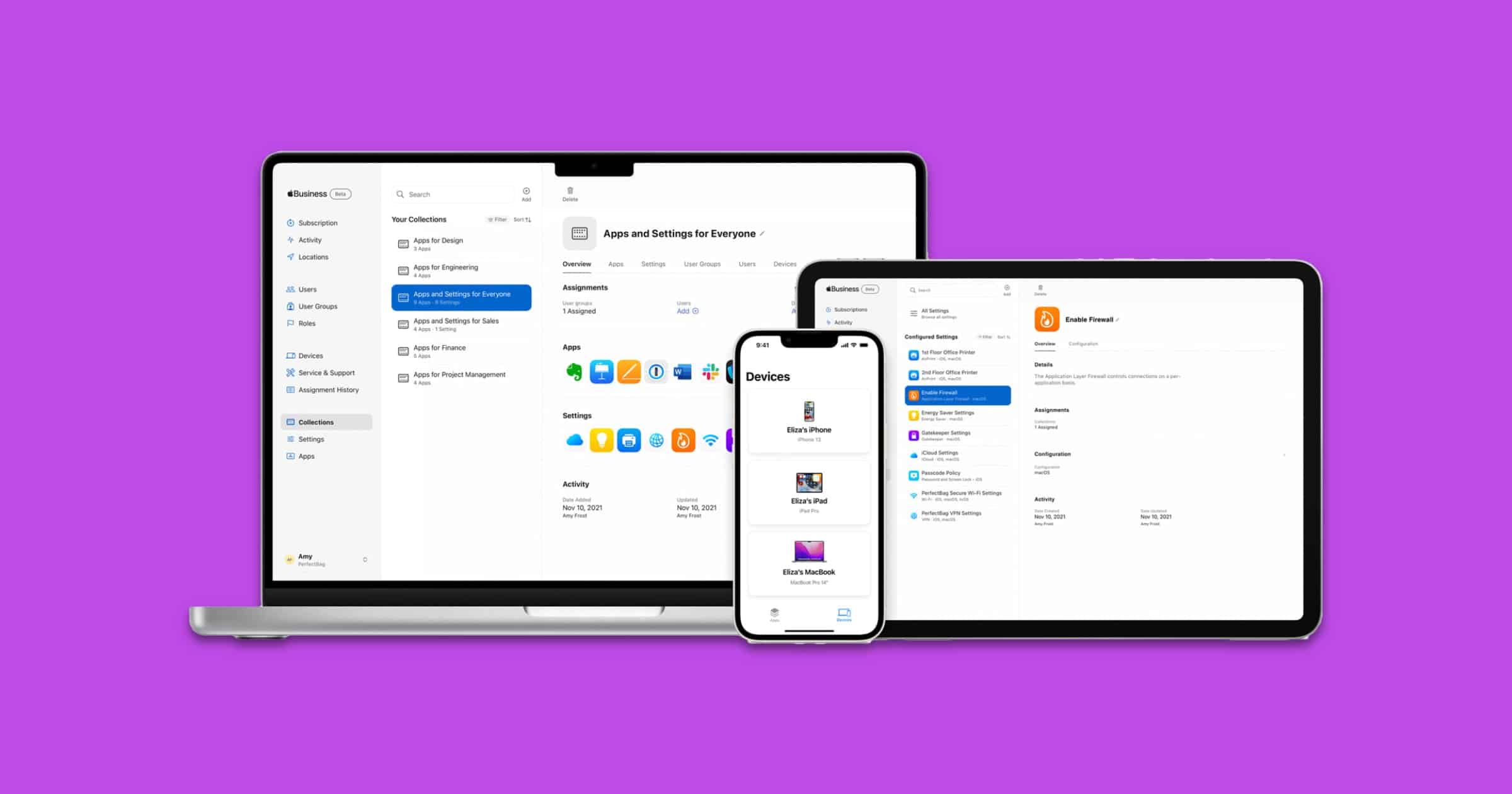On Wednesday Apple announced Apple Business Essentials, a subscription service for small businesses. It covers device management, 24/7 Apple Support, and iCloud storage plans.
Apple Business Essentials is available as a free beta starting today in the US. The service will be fully available in the spring of 2022. Sign up for the beta here.
Apple Business Essentials
Plans can be customized to support each user with up to three devices and up to 2TB of secure storage in iCloud, starting at US$2.99/month, with optional AppleCare+.
IT managers can enforce critical security settings such as FileVault for full-disk encryption on Mac, and Activation Lock to protect devices that may be lost or stolen. When employees use a personal device at work, User Enrollment creates cryptographic separation for work data, to ensure employee data remains private.
A feature called Collections enable IT personnel to configure settings and apps for individual users, groups, or devices. When employees sign in to their corporate or personally owned device with their work credentials, Collections automatically push settings such as VPN configurations and Wi-Fi passwords. In addition, Collections will install the new Apple Business Essentials app on each employee’s home screen, where they can download corporate apps assigned to them.

Andrew:
I wondered how long this was going to take.
As Brad Smith https://en.wikipedia.org/wiki/Brad_Smith_(American_lawyer)?wprov=sfti1 points out, the MS security data revealed that most of the business – related exploits had to do with outdated software that had not been patched with the latest security updates. This is due to either small businesses leaving it to individual employees to patch their software or over-worked IT departments to do so, both of which have sub-stellar records on update installations. They figured out that the most secure suites was their cloud-based Office 365 suite, and not the locally installed versions, which they appear to be phasing out.
It was only a matter of time for Apple, given the level of enterprise adoption of their hardware and software, to follow that same trend, as their data would reflect the same vulnerabilities.
The other two essential elements of cybernetic hygiene best practices include
In short, everyone should be: a) installing all security updates when released; b) using a password manager (Apple’s keychain is actually adequate for most users), and c) using MFA. These three steps, alone, would substantially reduce the majority the current reported exploits.